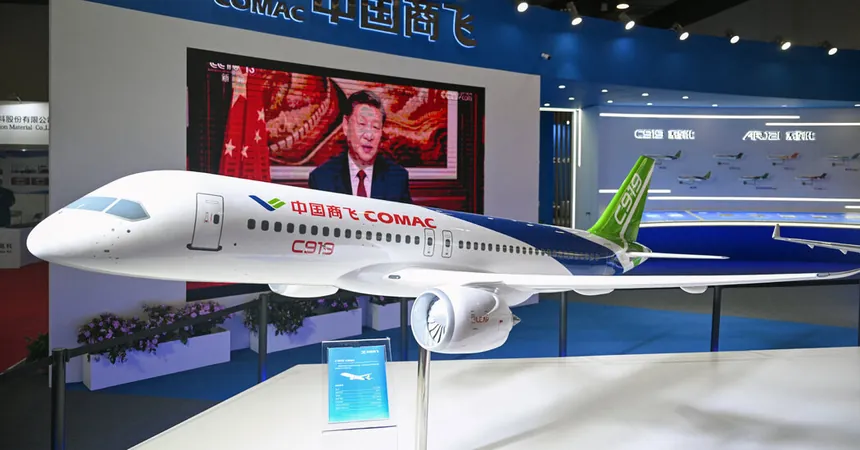
U.S. Halts Export of Key Technologies to China Amid Rising Tensions
2025-05-29
Author: Ting
Game-Changer in U.S.-China Relations
In a bold move, the U.S. has paused exports of critical technologies to China, impacting sectors like aviation, semiconductors, and chemical manufacturing. This escalation follows China's recent restriction on exporting vital minerals to the U.S., intensifying a brewing conflict over supply chain control.
A Shift Toward Supply Chain Warfare
As the world’s largest economies clash, this decision signals a shift towards potential supply chain warfare. The tension is palpable as Washington and Beijing vie for dominance over essential economic resources, further complicating a fragile trade relationship.
Implications for Global Industries
The ramifications of this standoff are significant for numerous industries that rely on imported technology. Companies in sectors ranging from aerospace to military contractors are now facing uncertainties that could alter how they operate.
Negotiation Hurdles Ahead
Despite ongoing negotiations aimed at resolving trade issues, including a temporary halting of tariffs on each other, U.S. actions suggest a renewed focus on punitive measures. Secretary of State Marco Rubio has announced a crackdown on visas for Chinese students in critical fields linked to the Chinese Communist Party.
China's Retaliation Strategy
Since April, China has suspended exports of essential resources like rare earth minerals, crucial for the manufacturing of vehicles, aircraft, and semiconductors. This tit-for-tat strategy is Beijing’s response to increased tariffs from the U.S., reportedly reaching as high as 145%.
A Potential Boon for U.S. Companies?
The implications of these restrictions are complex. The U.S. Commerce Department is reassessing its stance on exports to China, which includes halting licenses for American companies to sell technologies to state-owned enterprises like COMAC, pivotal for their C919 aircraft development.
The C919 Challenge
The C919 plane, poised to rival the Boeing 737 and Airbus A320, recently made its commercial debut but remains heavily dependent on Western suppliers for key components. Analysts predict that China’s ambition to self-sufficiency in aviation may be years away.
Chip Design Software Exports Impacted
The U.S. also appears to have paused the export of vital software used for chip design, impacting major tech firms. The Biden administration previously restricted advanced chip sales, but the current restrictions are notably broader.
Rising Concerns Over Dependency
As both nations drift toward viewing each other as unreliable partners, America’s reliance on China for critical goods raises alarms. The U.S. has tightened restrictions on advanced technology exports, further isolating Chinese tech firms.
China's Response to U.S. Moves
China has criticized U.S. export controls, painting itself as a defender of global trade norms. Meanwhile, it’s actively seeking collaboration with European chip companies, indicating a strategic pivot in its global partnerships.
Conclusion: A New Trade Reality?
This escalating tit-for-tat could redefine global supply chains, compelling both nations to reassess their strategies. The U.S.-China relationship, already fraught with tension, may be entering a new chapter of economic rivalry that could have lasting consequences.


 Brasil (PT)
Brasil (PT)
 Canada (EN)
Canada (EN)
 Chile (ES)
Chile (ES)
 Česko (CS)
Česko (CS)
 대한민국 (KO)
대한민국 (KO)
 España (ES)
España (ES)
 France (FR)
France (FR)
 Hong Kong (EN)
Hong Kong (EN)
 Italia (IT)
Italia (IT)
 日本 (JA)
日本 (JA)
 Magyarország (HU)
Magyarország (HU)
 Norge (NO)
Norge (NO)
 Polska (PL)
Polska (PL)
 Schweiz (DE)
Schweiz (DE)
 Singapore (EN)
Singapore (EN)
 Sverige (SV)
Sverige (SV)
 Suomi (FI)
Suomi (FI)
 Türkiye (TR)
Türkiye (TR)
 الإمارات العربية المتحدة (AR)
الإمارات العربية المتحدة (AR)